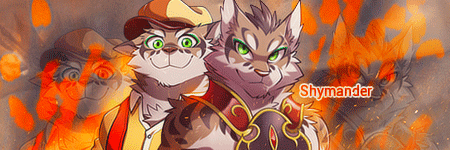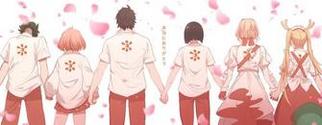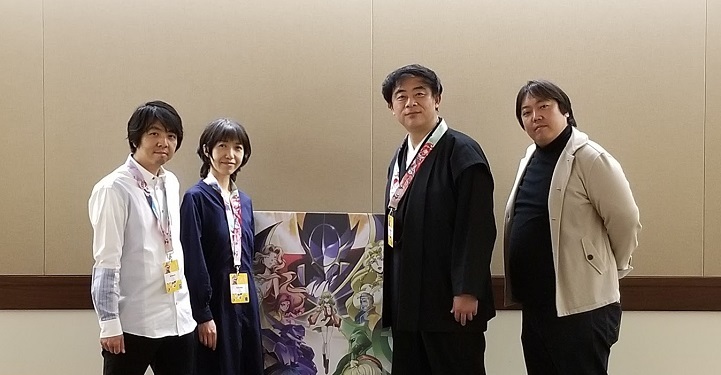 From left to right: Eiji Nakada, Yuriko Chiba, Gorou Taniguchi, Koujirou Taniguchi
From left to right: Eiji Nakada, Yuriko Chiba, Gorou Taniguchi, Koujirou Taniguchi
After its first episode aired in October 2006, Code Geass: Lelouch of the Rebellion went on to capture the hearts and minds of millions of fans around the world. Even now, over ten years after they finished airing, the two seasons of Code Geass's original saga rank as the 11th and 25th most popular anime on MyAnimeList, respectively.
In late 2016, Sunrise announced that Code Geass would be getting four new movies, including one with a completely original story, Code Geass: Lelouch of the Resurrection. The movie premiered in Japan on February 9 and will be showing in the U.S. on the 5th, 7th, and 8th of May.
Four members of Code Geass's production team were at this year's Sakura-con in Seattle to present a special early screening of Code Geass: Lelouch of the Resurrection. During this convention, MyAnimeList had the great honor of interviewing director Gorou Taniguchi, lead animators Yuriko Chiba and Eiji Nakada, and producer Koujirou Taniguchi.
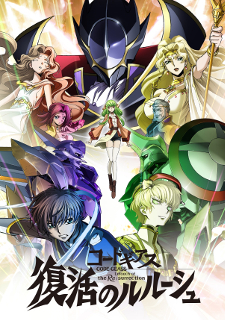 Why continue the story of Code Geass? How much more of the story is there to tell? Why continue the story of Code Geass? How much more of the story is there to tell?
Koujirou Taniguchi: When the TV series ends, we don't know for sure whether the protagonist, Lelouch, is alive or dead. In Japan, the fans more or less came to the conclusion that Lelouch was surely dead... And so now, ten years later, we're "resurrecting" Lelouch.
Gorou Taniguchi: To add, we wanted to make it unclear in the TV series whether Lelouch was alive or dead, to have it be a point of intrigue for our audience. We tried to leave it very vague, but people eventually decided that Lelouch was definitely dead. That wasn't our intention, so we had to come back and clarify.
Koujirou Taniguchi: We all hope that Code Geass will continue. How many more episodes remain in the story will be up to the fans.
What was the most rigorous part of creating this film?
Gorou Taniguchi: The images and vision of the characters held by fans – and even the original staff – have developed a lot in the ten years since the original work, growing and diverging in many different directions. We had to bring all of those together and unify them again.
Yuriko Chiba: The fans had been taking Lelouch in more of a "manga-like" direction, so I wanted to show Lelouch in a more realistic way without destroying their image or dream of Lelouch.
Eiji Nakada: For the TV series, I drew all of the mecha by hand. However, it was decided for this movie that we would mix 3D computer-generated animation and hand-drawn animation. And so, when we had these two styles appearing in the same scene or even the same frame, we had to work hard to make it look right, to make it look good. We wanted to ensure that having them coexist in the same frame didn't look odd. That was the hardest thing.
Koujirou Taniguchi: In the Japanese anime industry, there are currently about 100 episodes produced per week. Because of that large amount of content, what's popular is constantly changing. As a result, continuing to maintain Code Geass's popularity over a period of ten years is really a challenge. Marketing this new episode of the Code Geass legacy was a real challenge, in everything from promotion, advertising, etc. What made this even harder was the fact that the protagonist was "dead," so… we couldn't even use the most popular character, the protagonist, in early promotional material.
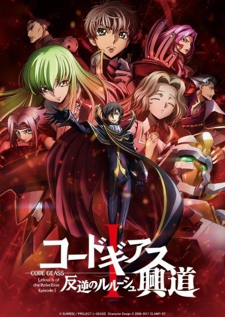 Why not a TV series? Why not a TV series?
Gorou Taniguchi: In the ten years since the original series, anime fans in Japan have changed in the sense that they no longer watch this kind of work in the same way. We concluded that a TV series would not have been the right way to approach those fans. Of course, there are many anime fans around the world that do like that kind of work, that kind of format. So if we were going to take a TV series approach, then maybe a format like Netflix would have been a possibility. But this time, we wanted to make sure that Japanese anime fans would see it, so we chose a movie format.
Are you going to make many more sequel movies for Code Geass? Or is this going to be the only one?
Koujirou Taniguchi: That's still a secret.
The movie trilogy leading up to this film made many changes to the original story. In particular, the fate of the character Shirley. Were there concerns that such a sweeping change would affect Lelouch's character motivations too much?
Gorou Taniguchi: We judged that the remaining motivation (Euphemia's fate, for example) was sufficient for this set of movies. And with the character Shirley, specifically... the more we portray Shirley, the more it becomes the story of Lelouch and Shirley. And that's more the direction that we wanted to take it now with this story. We created this film with the vision that Shirley represents peace and normality.
Would it be fair to say, then, that these new movies are more of an alternate canon, as opposed to a true recreation or continuation of the original series?
Gorou Taniguchi: Yes, that actually is the case. The TV anime series is the TV anime series, and the movies are the movies. They are best thought of as different works. We actually did the same thing with the Gundam movies. The anime had already existed, and when we made the movies, we also changed bits of the story in it. It's kind of a similar philosophy here.
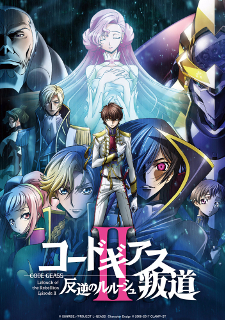 There has been a slew of live action adaptations of anime in recent years. Are there plans to adapt Code Geass into a live action story? There has been a slew of live action adaptations of anime in recent years. Are there plans to adapt Code Geass into a live action story?
Koujirou Taniguchi: No, not really. (Laughs.)
Gorou Taniguchi: However, we've actually done a stage version of Code Geass in the past. So if we were to get asked about whether or not we'd be up for making a live-action movie, we might be able to think about it.
Koujirou Taniguchi: Yes, exactly like with Gundam – if we got an offer from, say, Legendary, we would go ahead and say "Yeah, let's do it."
Besides Code Geass, this team has also worked together on titles like Junketsu no Maria and Planetes. Do you actively seek out to work together?
Gorou Taniguchi: In the end, we chose the people who we believed would do the best work for the given content. Obviously, we know each other very well, and I know I can trust them. That's why we end up working on a lot of projects together. From my standpoint, for Code Geass this time, I kind of took the staff I had worked with in Gun x Sword, as well as the staff I worked with in Eureka Seven, and combined them to work together on this project.
Actually... I have a question for anyone who has seen Junketsu no Maria. We tried our best to depict cool and realistic-looking medieval combat. Did we succeed at all?
Yes, very much so.
Eiji Nakada: Thank you!
Gorou Taniguchi: I'm very happy to hear that. And yes, Nakada-san was the one in charge of that aspect.
Eiji Nakada: I actually studied Western swordplay during the process.
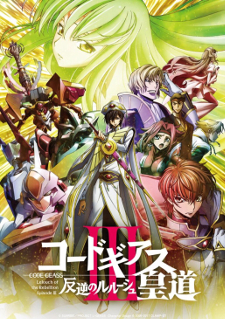 How in-depth do you go with your studying? For example, if you were to create an anime that features martial arts, would you go and explore those martial arts yourself? How in-depth do you go with your studying? For example, if you were to create an anime that features martial arts, would you go and explore those martial arts yourself?
Gorou Taniguchi: If it's Chiba-san and Nakada-san, working together on a Kung-fu anime… What would probably happen is that Nakada-san would literally go to a Kung-fu dojo and start learning, while Chiba-san would draw as she watched.
Eiji Nakada: Yes, and even in Code Geass – when there are scenes where some of the characters are fighting or tussling with each other, I actually go and play both parts, of the person who's doing the fighting and the person who's getting hit. That way, I can get a feel for what it might actually look like. And of course, Chiba-san is drawing and taking notes all the while.
Why is there a semicolon in the [stylized] title of this new movie, Code Geass: Lelouch of the Re;surrection?
Gorou Taniguchi: The title for the last episode of the R2 series had a subtitle – it was RE and a semicolon. What we wanted to go for was to create the feeling that this movie is building off of that in a way, where the character, world, and story are going to continue. That's the message we tried to include in there. Of course, this movie isn't a strict continuation of R2, but it's a story within the same world.
When you learned (or perhaps came to the decision) that you would be continuing the story of Code Geass, that you would be returning to these old characters – how did you feel?
Gorou Taniguchi: It was about 50% "Oh, great!" and 50% "Oh wow, this is going to be really tough." Specifically, "tough" is referring to the fact that this story has existed for a long time. It's been over ten years since it was first presented. Fans of the original Code Geass have a lot of really strong feelings about how things are or how things should go, so we needed to do our best to try and understand that and give people the sort of experience that they can enjoy after being fans for so long.
Yuriko Chiba: When I was told that we were making a movie, and was asked to "Please work on this movie with us," I thought it was a great honor. I was very happy to be asked to do that, so it was a joyful feeling for me.
Eiji Nakada: I had a similar feeling as Taniguchi-san. I thought "Oh, this is going to be a hard project." Especially in my position, where I would have to come up with new designs that the existing fans would enjoy. I'm also a fan of Code Geass. I'm making it, but I also really enjoy the world, the story. So I have to kind of struggle with how I personally want to do things and the fact that I have to do things in such a way that the fans would appreciate. I have to think of things that I would personally like to see in the Code Geass world, but that the fans would also enjoy – things that would get the best response. That was really tough for me, but it was also really awesome to hear that I would get to work on Code Geass again, after the end of the TV series. So it was tough – but it was also a great and fun experience.
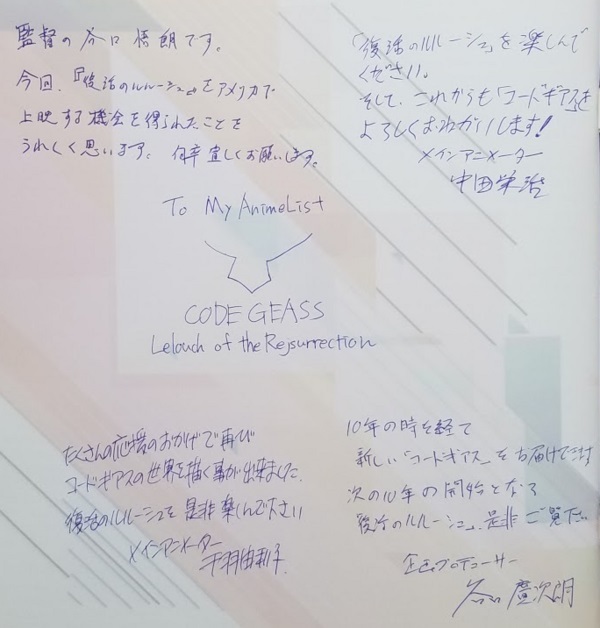 The interviewees send their regards to MyAnimeList
The interviewees send their regards to MyAnimeList
Final Statement
Koujirou Taniguchi: Code Geass: Lelouch of the Resurrection is coming out in America on the 5th, 7th, and 8th of May. We hope that everyone will enjoy the film, and perhaps take this as an opportunity to re-experience the original TV series. Please also think about what you would like to see in the Code Geass world from here on out!
Interview was conducted in a conference setting through an interpreter and has been edited for clarity. |

 Why continue the story of Code Geass? How much more of the story is there to tell?
Why continue the story of Code Geass? How much more of the story is there to tell? Why not a TV series?
Why not a TV series? There has been a slew of live action adaptations of anime in recent years. Are there plans to adapt Code Geass into a live action story?
There has been a slew of live action adaptations of anime in recent years. Are there plans to adapt Code Geass into a live action story? How in-depth do you go with your studying? For example, if you were to create an anime that features martial arts, would you go and explore those martial arts yourself?
How in-depth do you go with your studying? For example, if you were to create an anime that features martial arts, would you go and explore those martial arts yourself?
